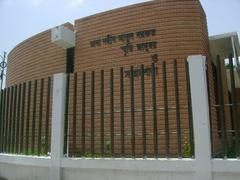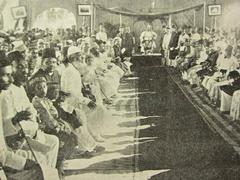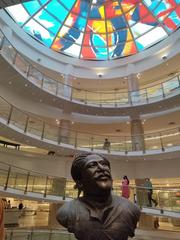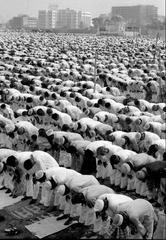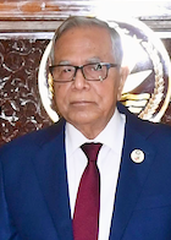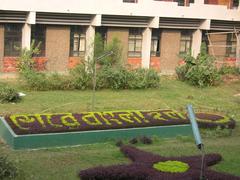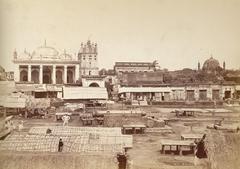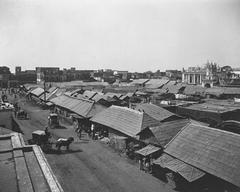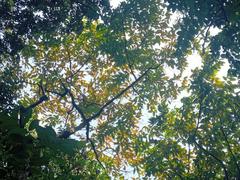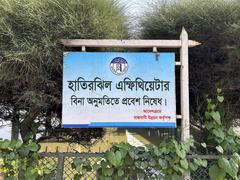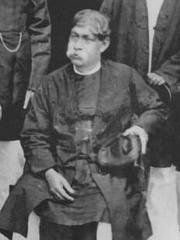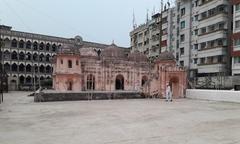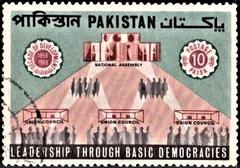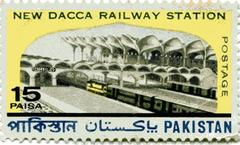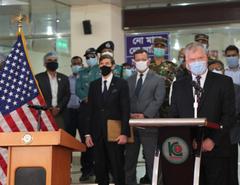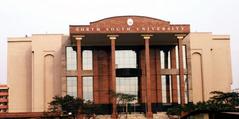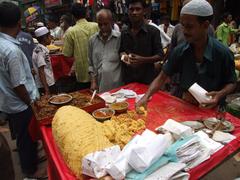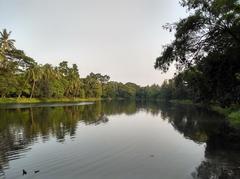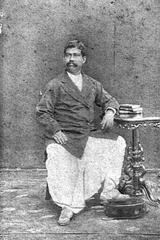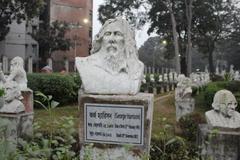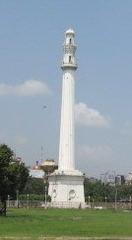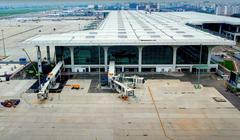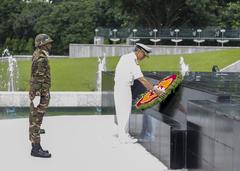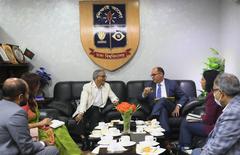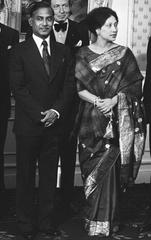
Kartalab Khan Mosque: Visiting Hours, Tickets & Comprehensive Guide to Dhaka Historical Sites
Date: 04/07/2025
Introduction
Kartalab Khan Mosque, also known as Begum Bazar Mosque, is a vibrant testament to Dhaka’s Mughal heritage and a living center of religious, social, and architectural significance. Commissioned by Nawab Diwan Murshid Quli Khan (Kartalab Khan) in the early 18th century, the mosque stands at the heart of Old Dhaka’s Begum Bazar district. It uniquely blends imperial Mughal grandeur with indigenous Bengali architectural elements, making it an essential destination for history enthusiasts, architecture lovers, and cultural explorers alike.
This guide provides a detailed overview of the mosque’s origins, architectural features, social significance, and practical visitor information—covering Kartalab Khan Mosque visiting hours, ticket policies, accessibility, etiquette, and nearby attractions. Immerse yourself in the layered history and living culture of one of Dhaka’s most treasured historical sites (Banglapedia, Dhaka Tribune, Evendo).
Table of Contents
- Introduction
- Historical Background
- Architectural Significance
- Social and Cultural Importance
- Visitor Information
- Location and Accessibility
- Nearby Attractions
- Travel Tips and Etiquette
- Frequently Asked Questions (FAQ)
- Conclusion & Summary
- References
1. Historical Background
Origins and Patronage
Kartalab Khan Mosque was established between 1700 and 1706 CE under the patronage of Nawab Diwan Murshid Quli Khan, known as Kartalab Khan, who was a key Mughal administrator in Bengal. His vision positioned the mosque not only as a site of worship but also as a commercial and social hub, pioneering a sustainable waqf (endowment) model by renting out rooms beneath the mosque to finance its maintenance (Banglapedia).
Construction and Historical Legacy
Built atop a high vaulted platform (tahkhana), the mosque’s structure features five domes—an uncommon arrangement in Bengal’s mosque architecture—along with the region’s only known baoli (stepped well). This synthesis of imperial Mughal and local Bengali styles reflects Dhaka’s role as a crossroads of cultures and commerce during the Mughal era. The mosque’s founder is interred beneath its entrance, in keeping with Mughal traditions (Dhaka Tribune).
2. Architectural Significance
Key Features
- Five Domes: Arranged over a single-aisled, five-bay prayer hall, crowned with lotus and kalasa finials.
- Elevated Platform: The tahkhana contains vaulted rooms historically rented to shopkeepers and students, reflecting the mosque’s dual religious and economic function.
- Unique Baoli: The mosque once featured a baoli, or stepped well—unique in Bengal—serving ritual ablutions.
- Do-Chala Roof Chamber: On the mosque’s north side, a chamber with a traditional Bengali pitched roof merges local and imperial styles (Banglapedia).
- Plasterwork and Ornamentation: The mosque’s exterior is finished with smooth plaster, shallow panels, and ornamental turrets. The domes and arches feature subtle Mughal and local motifs.
Conservation and Adaptation
Over centuries, renovations—including 19th-century restoration by Mirza Golam Pir—have preserved the mosque’s domes, towers, and decorative features. The commercial use of the undercroft continues to support the mosque’s upkeep (Evendo).
3. Social and Cultural Importance
Religious Center
Kartalab Khan Mosque remains a vital center for daily prayers, Friday congregational worship, and major Islamic festivals. Its spiritual role is enhanced by its historical waqf, which ensures ongoing maintenance and community activities (Dhaka Tribune).
Community Hub
Situated in the lively Begum Bazar, the mosque is a gathering place for traders, residents, and visitors. It hosts communal iftar meals during Ramadan, fosters charitable giving, and acts as a forum for social cohesion.
Educational Legacy
The mosque sustains a tradition of religious education through Quranic instruction, sermons, and informal gatherings, helping preserve local customs and values.
Interfaith Dynamics
Located near Hindu temples and Christian churches, the mosque fosters coexistence and multicultural exchange, especially during civic events.
4. Visitor Information
Visiting Hours
- Open daily: 8:00 AM to 6:00 PM
- Best times to visit: Early mornings or late afternoons for cooler weather and optimal photography.
- Note: Non-Muslim visitors are welcome but should avoid prayer times, especially Fridays and festival days (Evendo).
Entry Fees
- No entry fee: Donations for maintenance are welcomed but optional.
Guided Tours
- Available: Local guides are often present. For in-depth tours, book with heritage tour operators in advance.
Accessibility
- Elevated platform: Access involves steps, which may challenge visitors with mobility impairments. Ramps exist at some entrances, but assistance is recommended.
Dress Code & Etiquette
- Modest attire: Men—long trousers; women—cover arms, legs, and hair.
- Shoes: Remove before entering the prayer hall.
- Photography: Allowed in exterior/courtyard; always ask permission before photographing people or ceremonies.
5. Location and Accessibility
Getting There
- Location: Begum Bazar, Old Dhaka.
- By local bus: From Kamalapur Railway Station or central Dhaka to Babu Bazaar, then a short walk (Evendo).
- Ride-sharing: Uber and Pathao operate in Dhaka; expect 200–300 BDT from the city center. Allow extra time for heavy traffic and narrow streets, typical of Old Dhaka.
Traffic Tips
- Old Dhaka has dense traffic and crowded alleys. Consider visiting during off-peak hours or combine the trip with walking tours of the historic quarter.
6. Nearby Attractions
Enhance your visit by exploring other Dhaka historical sites:
- Lalbagh Fort: Iconic Mughal fort (1 km away)
- Ahsan Manzil: The Pink Palace, former Nawabi residence
- Star Mosque: Celebrated for its mosaic decoration
- Armenian Church: 18th-century Christian landmark (0.34 miles away)
- Hussaini Dalan: 17th-century Shia monument
- Bara Katra & Chota Katra: Mughal caravanserais
For local cuisine, nearby eateries like Haji Biriyani and Kolkata Kacchi Ghor offer traditional flavors (Wanderboat).
7. Travel Tips and Etiquette
- Security: Keep valuables secure and stay alert in crowded areas.
- Solo travelers: Dress modestly; women may use scarves for privacy.
- Weather: Best visiting months: November–February (15°C–26°C).
- Engage with locals: Respectful interaction can deepen your experience.
- Facilities: No dedicated parking or accessible restrooms on site; use public transport or taxis (We Free Spirits).
8. Frequently Asked Questions (FAQ)
Q: What are Kartalab Khan Mosque visiting hours?
A: Daily, 8:00 AM to 6:00 PM.
Q: Is there an entry fee?
A: No, entry is free.
Q: Are guided tours available?
A: Yes, via local guides and heritage tour operators.
Q: Is the mosque accessible for people with disabilities?
A: Limited, due to steps; some ramps exist but assistance is recommended.
Q: Can non-Muslim visitors enter?
A: Yes, outside prayer times.
Q: Is photography allowed?
A: Permitted in the courtyard/exterior; always ask before photographing individuals or ceremonies.
9. Conclusion & Summary
Kartalab Khan Mosque stands as a living monument to Dhaka’s Mughal past, uniquely combining architectural splendor, religious devotion, and social vitality. Its elevated platform, five domes, and historical baoli reflect a sophisticated interplay of Mughal and Bengali traditions. The mosque continues to nurture community life, education, and social cohesion, while welcoming visitors from all backgrounds.
For the best experience, plan your visit during the cooler months, respect dress codes and prayer times, and consider guided tours for deeper insights. The mosque’s proximity to other heritage sites further enriches your journey through Dhaka’s historic heart.
For up-to-date information, guided tour bookings, and immersive cultural content, download the Audiala app and follow heritage-focused platforms. Embrace the opportunity to explore one of Dhaka’s most captivating historical sites—Kartalab Khan Mosque.
10. References
- Kartalab Khan Mosque, Banglapedia, 2024 (Banglapedia)
- Kartalab Khan Mosque Dhaka: History, Visiting Hours, Tickets & Cultural Significance, Dhaka Tribune, 2017 (Dhaka Tribune)
- Kartalab Khan Mosque Visiting Hours, Tickets, and Historical Guide, Evendo, 2024 (Evendo)
- Architectural Significance of Kartalab Khan Mosque, Banglapedia, 2024 (Banglapedia Mosque Architecture)
- Mughal Mosque in Bangladesh, Academia.edu, 2019 (Academia.edu)
- Wanderboat Visitor Information (Wanderboat)
- We Free Spirits Travel Guide (We Free Spirits)

